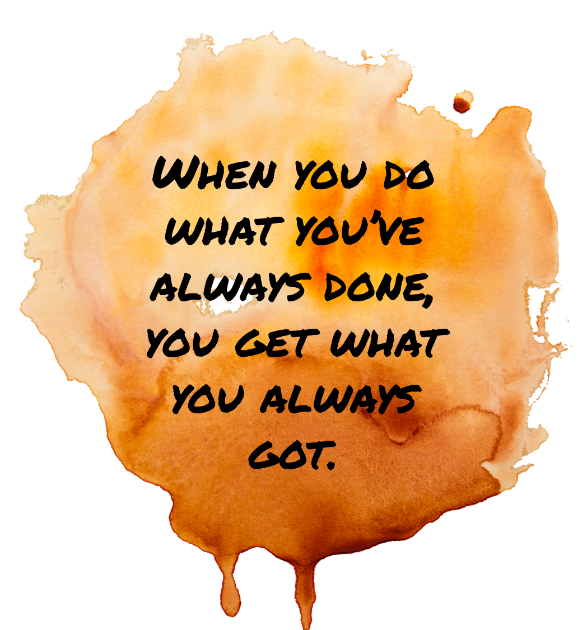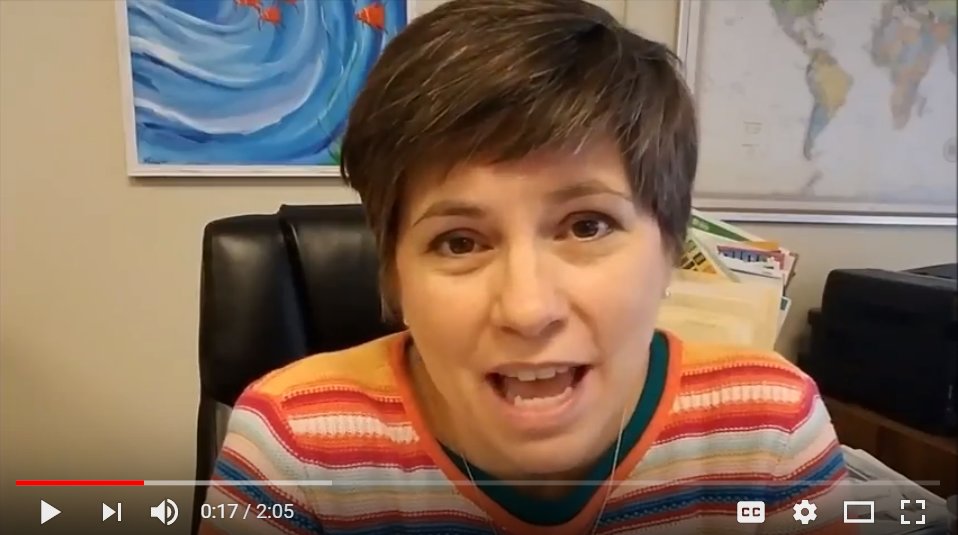Your small fundraising nonprofit depends on your leadership ability to survive and grow.
It’s like this: every garden has a farmer.
Someone has to have a vision for the garden and what it can produce.
Someone has to plan what to plant and where so the soil isn’t overtaxed.
Someone has to weed, water, and tend the garden while it’s growing.
Someone has to gather the harvest when it’s ripe.
You see, you’re the farmer and your nonprofit is the garden.
It’s up to you to hold the vision for your nonprofit. You’re the one who can plan for success and grow the organization to the next level so it can fulfill its mission.
And yet, if you’re missing critical tools or stuck in the mud with some stinkin’ thinkin’, you’ll find yourself with very little growing and producing fruit.
As the leader of your nonprofit, you need to stretch yourself to keep your nonprofit growing, because your leadership skills will pave the way for the organization to grow.
Your ability to get organized, practice good work habits and even set personal boundaries will have a tremendous impact on your organization and the extent to which it changes lives.
Organizations that I see thriving have someone at the helm who is open and authentic. They’re willing to take a risk and try something new. They’re willing to admit they don’t know everything. And they’re willing to take feedback and use it to improve themselves and their nonprofit.
Be the leader your nonprofit needs
Being a leader is about showing others the way. It’s about providing direction so that others know which path to follow to reach the goal.
As a nonprofit leader, it’s about
- Your ability to inspire your team and motivate them to work.
- Staying organized and putting systems in place that others can follow.
- Setting a good example with personal success habits and self-discipline.

One of the best ways to get started is to be on purpose.
Never do something just because you always have. Do it because it will move you closer to your goals.
For example, don’t hold that event or calendar sale just because it’s been done for the last 2 years. Do it because it’s a good way to raise big money plus raise awareness in the community, and will help fund your programs for the next 6 months.
We’re talking about being proactive vs reactive.
You’ll never grow your nonprofit to its full potential while you’re in reactive mode.
If you’re not a very organized person or have trouble creating systems, get help. There are plenty of people out there who can provide some assistance or even do it for you.
The important thing is to be purposeful and work on things that your organization needs in place to grow.
Play to your strengths

Do you know what you’re good at? Lots of people sort of know, but either don’t own it or haven’t really gotten clear about their strengths.
There’s an exercise I do with my clients where we separate their areas of excellence from their areas of competence, and I tell them to only work ‘above the line’ and stay in their excellence. It’s usually a huge relief for them to hear that they don’t need to work on improving the areas they’re weak in. It’s way more productive to improve the good than to try to improve the weak. Not only will you get more done, but you’ll have more fun in the process.
Of course, knowing this for yourself and practicing it is great, but being able to coach your team to work in their areas of excellence will help propel your nonprofit forward even faster.
Watch your mindset
Mindset is the slippery yet critical part of being a leader.
Your mindset is the way you look at things. It’s a combination of your experiences and your feelings about those experiences.
It’s the filter through which you view the world.
And it’s a little tricky.
Sometimes our thoughts or beliefs get in our way and hold us back.
For example, if your nonprofit is small, you may think “We’re just a small nonprofit – we can’t compete with the big nonprofits.”
Henry Ford was right when he said “Whether you think you can or you can’t, you’re right.”
If you believe something to be true, it is.
You can usually identify beliefs based on thoughts and words. If you’re thinking something isn’t possible, you’ll use phrases like “it won’t work” or “we can’t do that.”
It takes a lot of work to change your mindset, but it can be done. The first step is to notice what you’re thinking and saying.
Remember that your team will take their cues from you. So, if they hear you say “we can’t do that,” they’ll believe it, too. Your belief will become their belief, too.
The Bottom Line
Your nonprofit will never outgrow your personal leadership skills.
So, be the leader your nonprofit needs to grow to its full potential.
Then step back and watch it grow!








Leave A Comment